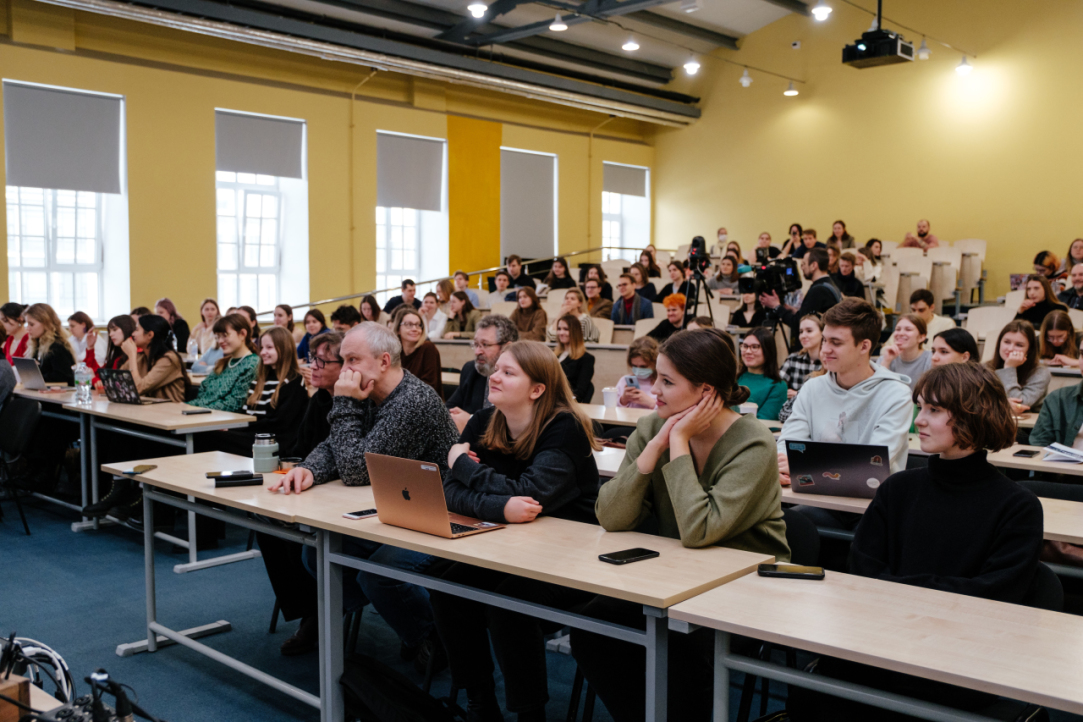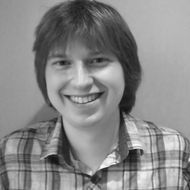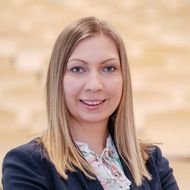'They Make a Choice Right on the Spot': Results of the Winter School
During the weekend, on February 4-5, HSE University-St Petersburg held the Winter School for which 3194 people had registered. Prospective Master's students had a chance to learn more about studies in the programmes, listened to interesting lectures from professors and business experts, and even ask Eugene Vodolazkin, a famous writer, their questions. Find out how these two days went in the article.

On the first day, February 4, there were presentations on Master's programmes at HSE University-St Petersburg. Guests had a chance to talk to lecturers and academic supervisors, take part in the workshops and listen to informative lectures. Applicants to the Master's programme 'Comparative Politics of Eurasia' found out which approaches to defining the Eurasian space there are and how the relations between the European Union and the countries of Central Asia are built. The lectures of the Master's programme 'International Business in the Asia-Pacific Region' covered the HR trends and the ways for corporations to adapt to the Chinese market.
Andrey Starodubtsev, Academic Supervisor of the Master's programme 'Comparative Politics of Eurasia'

I like Winter Schools as they let us offer all the most interesting things to students who are making the choice at this very moment. It is like checking the materials: we see what can become an interesting course or lecture and, on the contrary, what is rather questionable. There are a lot of listeners at our lectures, and it is immediately obvious that students make their choice of a programme or a field of study during the events—that is why I like everything that is going on.
Liudmila Veselova, Academic Supervisor of the Master's programme 'International Business in the Asia-Pacific Region'

The Winter School is a great opportunity to get to know an academic supervisor and lecturers because it is always better to see and hear everything yourself. Each applicant can easily ask a question about the programme even as we have a lot of information on our website and booklets, there are always a lot of questions. We need to explain to applicants that we look closely at every portfolio and that all the questions that arise during the admissions process can be solved—you just need to follow the information on the website and not be shy to ask the programme's academic supervisor questions.
As for the Winter School of this year, I can see that all the applicants are motivated: they visited the programme's website, so the prospective students know about the courses and tracks and ask clear questions. They have specific goals and ambitions, which is always pleasant. These are the applicants we are waiting for.
On the first day, the applicants managed to make up portraits of master's programmes at HSE University and think through how the continuation of their education can help them to develop their careers.
Anastasia Metlitskaia, a graduate of SPbGASU, wanted to learn about the Master's programme 'Urban Development and Governance'
I guessed that there was a lot of Economics, but I was curious to know how the Spatial Direction was combined with it. They say that the programme is interested in architects and urbanists, and I studied Urban Development at the university.
Now, while working, I look a lot at management, distribution of the budget and investments in private projects. As I am far from Economics, perhaps, I would like to improve my knowledge in this field, and it looks like the programme suits me. However, I do not strive to work in the civil service—but it seems like you can find the balance.
Veronika Shumkova, a graduate of Herzen University, wanted to learn about the Master's programme 'Educational Administration'
I agree with the phrase on the board—it said that a person started being shaped mostly at school. Children spend an enormous amount of time there—even more than with their parents. We have to start with the educational administration: I think, what we have now does not work. I undertook three years of internships in various gymnasiums and understand from my own experience that we should change something and offer some ideas.
I think that if I enrol in the programme, I will learn how to build a strategy. I have my own school of the English language. Perhaps, I will see it from a different perspective. I have some teaching experience, but I have to gain managerial experience myself and get hard knocks which may hurt sometimes.
One of the most memorable events was the meeting with Eugene Vodolazkin, a writer. He told the students about his novel 'Chagin' which was released in November 2022. The main character of the book has phenomenal memory: he can remember anything with maximum accuracy. Memory is what the narrative is structured around, we can call it a main protagonist.
Even earlier, Mr Vodolazkin reflected on history, memory and experience, however, in 'Chagin', he added the myth to them. After all, mythology is inseparable from the conversation about history and memory. With mythology, the perception of memory is changed: a person might see something that is not there in reality and miss something that is. You can find out more about Vodolazkin's new novel from the record of the live stream.
The meeting with the writer ended with answers to the questions and an autograph session. A special guest was Alexey Nilov, an actor who starred in the TV series 'Streets of Broken Lights'.
On the second day, the participants of the Winter School had a chance to listen to the speeches of lecturers, business and city government representatives in Russian and English. Dmitry Cherneiko, Chairman of the St Petersburg Committee for Labour and Employment, told about the structure of the labour market. He explained that the approach to understanding personnel shortages should be more comprehensive. It is necessary to take into account what a person wants in terms of career and what they are capable of. The topic of the labour market continued in the speech of Igor Murashev, Vice Chairman of the Public Service and Personnel Policy Committee of the Administration of the Governor of St‑ Petersburg, Head of the Evaluation and Human Resources Department. He explained how the youth personnel reserve of the St Petersburg government was formed.
The perspectives of universal tourism platforms were touched upon in the lecture of Valery Gordin, Head of the Laboratory for Management in Culture and Tourism. He shared that the major expenses of Russian tourists include transport, food and accommodation. The most common type of vacation is the beach one. Prof Gordin also noted that tourists preferred to organise their vacation themselves. However, in the opinion of travel agencies, travellers often face inconsistencies in the price and quality of the service. It is a universal tourism platform which would help to find the most suitable options for accommodation and snacks. You can watch the full lecture in the VK group for the Master's applicants of HSE University-St Petersburg.
At the end of the Winter School, the most active participants received certificates of participation. Such certificates can bring you extra points for admissions to master's programmes at HSE University-St Petersburg.

